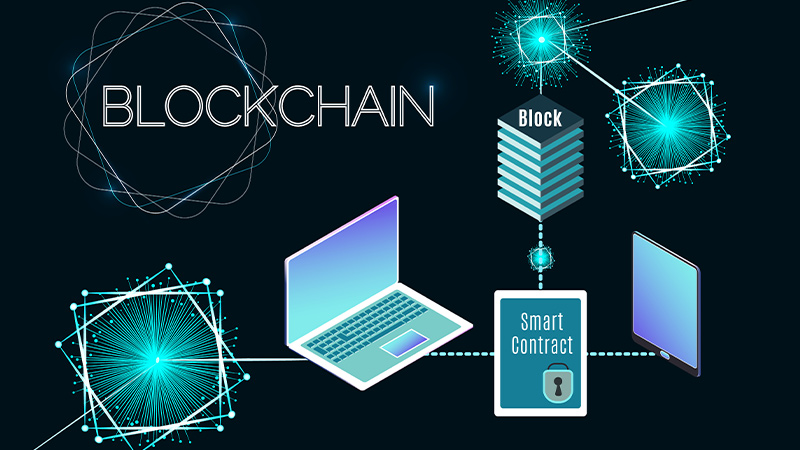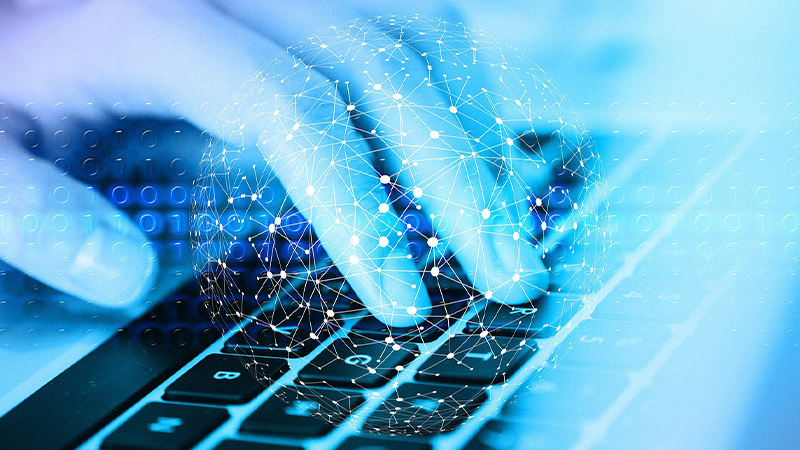The much talked about Polygon MATIC cryptocurrency platform is directed and discussed to provide a thorough guide to this relatively new kid on the block
Smart contracts are automated agreements between two people on a blockchain. The contract creator or vendor sends the smart contract to the recipient or purchaser. Smart contracts are written in code, and the agreement is 'locked' into the blockchain, making it irreversible, immutable, and completely secure.
A critical advantage of smart contracts is that they do not become 'live' until all preset conditions are met. All relevant parties in the agreement are sure that the agreement is secure before it concludes. At the time of writing, Solidity is one of the programming languages most used for writing these computer programs.
Smart contracts are not as new as most people think. Indeed they came before blockchain technology. Nick Szabo, a computer scientist, and cryptographer working as a graduate student at the University of Washington, first coined the phrase more than 20 years ago, back in the 1990s.
Szabo stated, "New institutions, and new ways to formalize the relationships that make up these institutions, are now made possible by the digital revolution. I call these new contracts' smart,' because they are far more functional than their inanimate paper-based ancestors. No use of artificial intelligence is implied. Instead, a smart contract is a set of promises, specified in digital form, including protocols within which the parties perform on these promises."

Szabo cleverly chose the word 'smart' to describe these critical functional technologies. Smart contracts are smarter than traditional paper contracts because they automatically execute necessary pre-programmed steps. If the process does not fulfill the steps, the contract does not execute.
Smart contracts work by adhering to six basic steps; the agreement, the conditions, coding, blockchain, execution, and recording.
The Agreement
The primary transaction is agreed upon by all parties involved. This can be a simple sale between two parties or a complicated deal involving many parties investing at different levels.
The Conditions
Once the parties establish the agreement, they need to agree on any preset conditions they must complete before the smart contract is considered correct.
Coding
Once the parties agree with the conditions of the agreement, a technician writes the details into a piece of code.
Blockchain
The agreement, written in code, is now encrypted and stored in the blockchain network. It is now immutable.
Execution
Once all predetermined conditions are met, the smart contract executes the deal finalizing it.
Recording
At this point, the transaction is recorded on the blockchain just like a traditional deal is sealed on paper. However, all nodes will, at this point, update their copy of the blockchain to include this transaction. Then the entire blockchain updates to permanently include the contract in the new "state" of the network.
Smart contracts are becoming an increasing fixture in the business world. Their uses are many-fold; healthcare, digital identity, taxation records, banking, insurance, real estate, gaming, gambling, and so much more.
French Airlines, for example, use them for flight cancellation insurance claims. Insurers, AXA, are now insuring through the blockchain. So it's actually a simple idea. However, getting compensation for late flights can be very challenging, even if your insurance covers it. With Fizzy by AXA, you will receive an automated offer of compensation details whenever flights are delayed by more than two hours, provided your app has your flight details. Here the preset conditions of smart contracts are the two-hour delay parameter.
With smart contracts, all parties get a secure, transparent and autonomous transaction. Cutting out the middleman in any deal reduces the cost and assures accuracy between the involved parties. The storage and backup that comes with blockchain technology are also a huge positive.
One crucial benefit of blockchain technology is the automation of tasks that previously required third-party intervention. For example, instead of needing a banking institution to approve fund transfers between clients and freelancers, the process now happens automatically, thanks to smart contracts. All that is needed is for the two parties to agree on the concept.

Waste reduction will be a future big issue in the use of smart contracts. The United Nations Food and Agriculture Organization estimates that more than 30% of food worldwide gets wasted. Furthermore, this loss is estimated to be worth approximately $940 billion.
With starvation still a massive problem worldwide, any savings must be considered a huge plus. Due to inefficiencies in the Health sector, waste is endemic. In addition, system inequalities and poor training create huge waste issues. Experts agree that smart contracts could hugely reduce, if not entirely eradicate, waste in both these industries.
Decentralized Finance (DeFi)
DeFi is currently the fastest-growing sector in the worldwide blockchain ecosystem. It has almost limitless potential. Uses range from simple peer-to-peer transactions to infinitely more complex and multiparty applications like insurance, loan agreements, asset trading, asset tokenization, exchanges, and more. Smart contracts play an immensely important role in decentralized finance.
Gaming and Non-fungible tokens
To many on the outside, gaming is a mysterious and weird world. However, it is absolutely immense and one of the largest sectors in business today. The use of non-fungible tokens for gamers is already an everyday occurrence. From buying avatars to digital fashion, artwork, and countless other items, gamers see the use of smart contracts as entirely mundane.
Insurance
As mentioned above, some sectors are already heavily invested in blockchain insurance. Moreover, digitally financed insurance is growing. Therefore, most expect it to be a significant player in blockchain technology over the coming months and years.
Digital identify
Identity theft is a major problem and has been for many years. However, with the introduction of smart contracts, your digital identity is becoming increasingly more secure. We all heard of the Facebook scandal with multiple identities passed over to Cambridge Analytica. If they had used smart contracts, that would have been impossible. Blockchain technology may well be the future of digital identity safety.
Supply chain
Supply chains involve multiple stakeholders and business transactions and are inherently complicated. The many challenges include; lack of transparency and traceability, risk management difficulties, disruptions, and lack of trust and reputation. Blockchain technology has the potential to solve all these challenges by using smart contracts. In short, they reduce the complexity of supply chains through automated verification and the application of dealing with multiple business transactions.
Risk management tokens
We all know that cryptocurrencies are highly volatile at the moment. Investors are genuinely nervous and not without good cause. The use of risk management tokens can minimize investor risk to an acceptable preset limit. The first rule of crypto is never to invest what you cannot afford to lose. However, these contracts mitigate any risk.
Real estate
Realtors have long touted real estate as the ideal business for smart contracts. Propy was one of the first companies in the world to employ them successfully. In 2017 their first transaction using a smart contract saw a customer purchase an apartment in Ukraine. Smart contracts are ideal for cross-border purchases of property. Any interested party can simply pay a deposit to an escrow company. If the vendor does not fulfill the terms of the deal, the smart contract will ensure the return of the deposit.
Building DAOs
A "Decentralized Autonomous Organization," is a community-led entity with no central authority. DAOs are fully autonomous and transparent. Smart contracts are crucial to their existence. They lay out the initial rules, execute the pre-agreed conditions, and can publicly audit, at any point, proposals, voting, and even the coding.
Writing a smart contract is not a very complicated exercise. However, a knowledge of Solidity programming is essential. Most technicians use Solidity, which takes about six months to learn, to write smart contracts. Many courses are available, but do your research and choose one with a solid reputation and proven case studies.
Once you know how to code, it is simply a case of creating a wallet, installing MetaMask in your browser then selecting test networks. The cost of employing someone to do it for you varies immensely. The sheer variation in the complexity of these contacts can be huge. There are many videos available to watch to learn how to create your own. Below is one that we highly recommend.
The fact that nobody can alter smart contacts once written is mainly favorable for security reasons, it does present some issues. For example, if designers make mistakes in the coding, it is almost impossible to correct them. The whole process must start again, which is time-consuming and expensive.
Sometimes if a coding mistake is not spotted, it can lead to a lapse in the security of the contract. This kind of issue is, at the moment, only seen as a small problem. Smart contracts use distributed ledger technology on the blockchain. These are open source and readable by the general public. The big issue for developers is finding a way to increase security without increasing the overall costs.
The peer-to-peer network means that contracts are open to threats. These threats generally come in the form of reentrancy bugs and event-ordering bugs. Hackers use these bugs to inject data to gain profit.
Because smart contracts make cross-border transactions infinitely easier, governments are naturally suspicious. Therefore, the threat of legal regulations and restrictions is genuine. In addition, the immutability of these contracts means that if a government changes the law, the contracts cannot be altered to comply. If this happened, the contract would have to be aborted and rewritten completely, thus adding more costs.
There is undoubtedly debate regarding this issue. However, most experts believe they either are or will be. Some academics in law claim that smart contracts are not legal agreements; they see them instead as a means of facilitating obligations that derive from other agreements, such as technological means. Furthermore, the academics claim they just automate payment obligations in the transfer of digital tokens or cryptocurrencies.
American law states that smart contracts are permitted in commerce. The law states, "No contract relating to a transaction shall be denied legal effect, validity, or enforceability solely because that contract is executed through a smart contract."

It seems impossible at this stage for the huge growth in smart contract use to do anything other than continue or increase. More and more businesses are seeing the enormous potential advantages of their use. Smart contracts solve everyday problems that people have been experiencing for decades. In the future, these digital contracts will likely become critical tools in customer service industries, making the customer experience safer and more accessible.
Smart contracts have created a valuable niche space within so many industries that it is obvious that they are here to stay. They may change and develop as all new technologies do, but their essence will remain similar to where it is now. As governments and financial bodies grapple with the threats to the old guard they present, the crypto world will increasingly use and trust them more and more.
As always, it is essential that you do not take this article as investment advice. We always encourage our readers to do as much research as possible. There is plenty of material out there to read.
Follow us on Twitter for new content every week! We publish the very best updates, weekly news bulletins, guides, and much more.
The much talked about Polygon MATIC cryptocurrency platform is directed and discussed to provide a thorough guide to this relatively new kid on the block
The ultimate guide to Bitcoin, its place in the cryptocurrency world, and how you can get involved should you wish. A comprehensive look at Bitcoin.